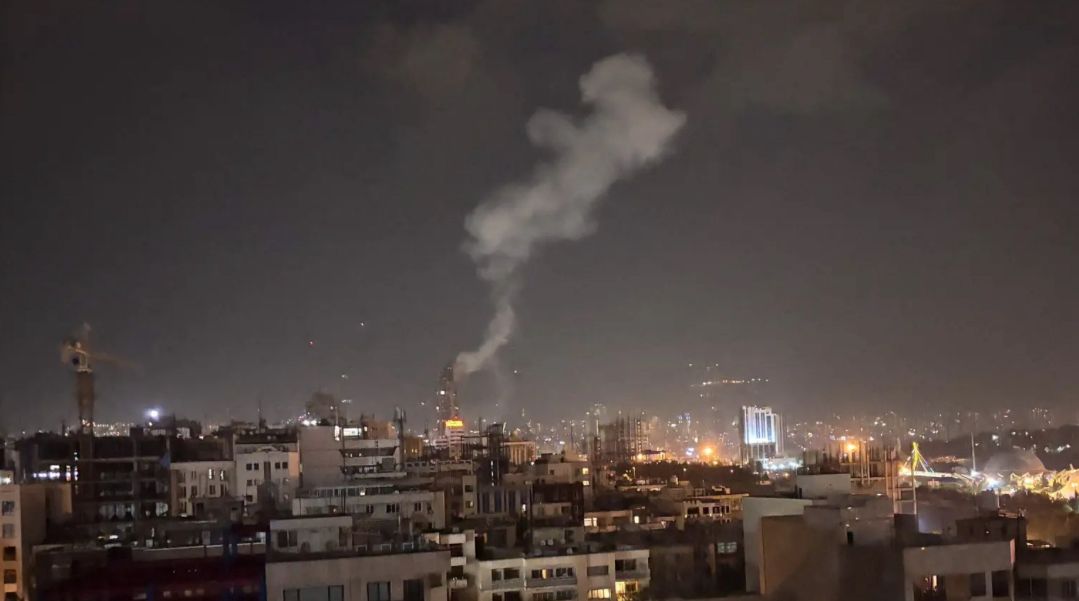
Israel Bombs Iran’s Nuclear Sites, Kills IRGC Chief in Major Escalation as War Threat Looms » Capital News
NAIROBI, Kenya June 13 – Tensions in the Middle East reached a boiling point early Friday after Israel launched a sweeping military offensive on Iranian soil, striking what it described as the “heart” of Iran’s nuclear programme in a dramatic escalation of hostilities.
According to a statement from the Israel Defense Forces (IDF), dozens of Israeli Air Force (IAF) jets carried out coordinated attacks on multiple military and nuclear sites across Iran. “Dozens of IAF jets completed the first stage that included strikes on dozens of military targets, including nuclear targets in different areas of Iran,” the statement read.
Prime Minister Benjamin Netanyahu, in a televised address, said the operation was intended to “roll back the Iranian threat to Israel’s very survival” and would continue “for as many days as it takes to remove the threat.”
Major Iranian Military and Scientific Figures Reported Dead
Iranian state media confirmed that the head of Iran’s Islamic Revolutionary Guard Corps (IRGC), General Hossein Salami, was killed in the strikes. Also reported dead were prominent nuclear scientist Fereydoun Abbasi, theoretical physicist Dr. Mohammed Mehdi Tehranchi, and Major General Gholam Ali Rashid, a key military strategist.
Explosions were reported northeast of the capital, Tehran, with Iranian outlets saying several buildings tied to the armed forces were hit, particularly in the Mahalati complex north of the city. The International Atomic Energy Agency (IAEA) confirmed that Iran’s uranium enrichment facility at Natanz, in Isfahan province, was among the targets.
Iran’s Supreme Leader Ayatollah Ali Khamenei responded with fury, warning of “severe punishment” and accusing Israel of targeting residential areas. “In the enemy’s attacks, a number of commanders and scientists were martyred. Their successors and colleagues will immediately continue their duties,” said a statement via the Tasnim news agency.
Israel on High Alert
In response to the anticipated Iranian retaliation, Israel’s Defence Minister announced a “special state of emergency,” warning that a missile and drone attack was “expected in the immediate future.” Air raid sirens blared across major cities, and citizens received phone alerts advising them to brace for a potential counterstrike.
The IDF declared it was “prepared for a wide range of scenarios in defense and offense that may be needed.”
U.S. Distances Itself, Warns Iran
U.S. Secretary of State Marco Rubio said the United States was not involved in the Israeli operation but affirmed Israel’s right to self-defence. “Let me be clear: Iran should not target U.S. interests or personnel,” he said, adding that “necessary steps” had been taken to safeguard American forces in the region.
The Israeli attack comes amid heightened global concern over Iran’s nuclear ambitions. Earlier this week, the IAEA warned that Iran had begun breaching its nuclear obligations for the first time in 20 years. While Iran insists its nuclear programme is for peaceful, civilian purposes, both Israel and the United States suspect Tehran of pursuing a covert path to nuclear weapons capability.
This latest round of hostilities threatens to spiral into a broader regional conflict, with global powers watching closely as the fallout from the Israeli strikes unfolds.